|
McCloud River Railroads: Equipment
McGiffert Loaders |
|
|
|
Once railroads became an integral part of logging, a means of loading logs onto railcars had to be developed. A number of different machines to accomplish this task were invented. One of the more successful types of loaders in the pine woods of the Intermountain West was the McGiffert Loader. John R. McGiffert invented the McGiffert loader, and the machines were manufactured by the Clyde Iron Works of Duluth, Minnesota. The McGiffert was a large, somewhat awkward looking machine. The boiler and spools were mounted on a platform that was elevated over the tracks. The entire machine sat on legs that rested on the ground on either side of the tracks. The McGiffert was self-propelled, as it had a chain-driven drive axles that moved the machine along the rails. The wheels were retracted up against the botton of the platform when the machine was set up to load cars. When set up to load cars, the McGiffert straddled the tracks, and empty log cars were shoved underneath the loader. The log cars would then be rolled through the loader, with logs loaded onto the cars by a boom off of one side of the loader. The first McGifferts appeared in the woods around 1902. Nearly a thousand of these machines would be built between then and around 1930, when production ceased. According to company documents and a roster compiled by John Taubeneck, the McCloud River Lumber Company owned at least six of these McGiffert loaders. They were as follows: • McGiffert #678, built 4/1907 as McCloud River Railroad Company #1751:1. Cost $5,570, plus $1,221.75 freight to Upton, $100.22 to set up, $988.66 for chains, $48.39 for freight on chains, and $272.09 allowance on set-up account. To McCloud River Lumber Company 5/31/1922; to Kesterson Lumber Company, Dorris, California, circa 1925/1926; to Weyerhaeuser Timber Company, Klamath Falls, Oregon, 1929. Donated circa 1961 to Collier Memorial State Park, Chiloquin, Oregon. On display at Collier, one of six or seven known surviving McGifferts. Machine heavily damaged in the Two Four Two fire in September 2020. • McGiffert #697, built 4/1907 as McCloud River Railroad Company #1753:1. Cost $5,570, plus $1,202.20 freight to Upton, $100.22 to set up, $988.66 for chains, $48.39 for freight on chains, and $272.09 allowance on set-up account. To McCloud River Lumber Company 5/31/1922; Further disposition unrecorded. • McGiffert #698, built 4/1907 as McCloud River Railroad Company #1755:1. Cost $5,570, plus $573.60 freight to Upton, $100.22 to set up, $988.66 for chains, $48.39 for freight on chains, and $272.09 allowance on set-up account. To McCloud River Lumber Company 5/31/1922; Further disposition unrecorded. • McGiffert #1205, built 2/26/1917 for A. Guthrie & Company, Casway, Washington. To Cascade Lumber Company, Cle Elum, WA, 1918; to Forest Lumber Company, Pine Ridge, Oregon, 1925; to McCloud River Lumber Company, Bartle, CA, circa 1942. Seen in use on the McCloud as late as the mid-1960s. • McGiffert #1223, built 7/5/1918 for Brooks-Scanlon Lumber Company, Bend, Oregon. To McCloud River Lumber Company, Esperanza, California. • McGiffert #1286, reported in use on the McCloud River Lumber Company at Burney, California, in 1927, which cannot be completely correct...Pondosa is far more likely. Heritage Junction of McCloud museum has the builders plate in its collection. Surviving records tend to suggest the McCloud operations used McGiffert loaders in two district era, the first from 1907 until the middle 1920s when the donkey boom loaders detailed in the McCloud River Lumber Company section of this website replaced them. The second era started in the late 1920s when tractors replaced the steam donkeys. The use of McGifferts in the McCloud woods appeared to have ceased by the early 1960s, especially after the lumber company mounted a gas powered shovel on a frame over the tracks to replaced the old loaders. As noted, only six or seven of the machines are known to exist today. Two of them are on display at the logging museum in Collier Memorial State Park at Chiloquin, Oregon; two more are in the Southern Forest Heritage Museum in Long Leaf, Louisiana; one more is on display at a museum in Duluth, Minnesota, and the sixth rests upside down and buried in a lakebed in British Columbia. The possible seventh was reported to be on display in El Salto, Durango, Mexico, as late as 1999 and may still be there. The McGiffert loader on display in Duluth does have a McCloud connection. Clyde built it on 1/6/1923 as its construction number 1260 for the Weed Lumber Company in nearby Weed, and it spent almost its entire career in the woods north and east of Mt. Shasta wording for Weed and its corporate successor Long-Bell. In 1956 Long-Bell sent the loader to McCloud to load logs the company harvested from the Hearst Estate properties southeast of McCloud, and it remained in McCloud after that job ended until 1978 when Long-Bell successor International Paper donated it to the Lake Superior Railroad Museum in Duluth. |
|
|
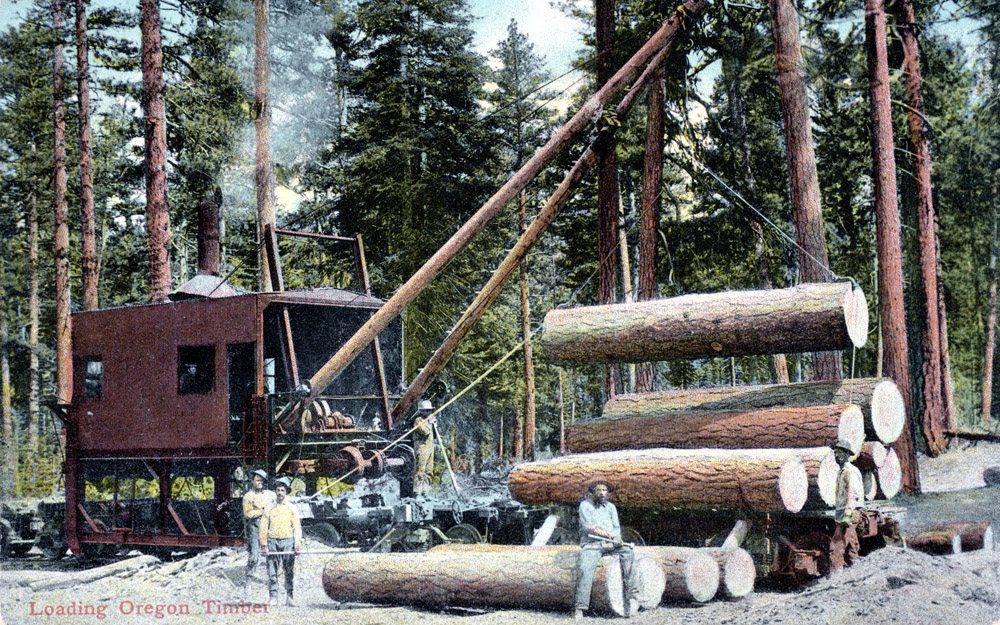 |
|
A colorized post card marked as "Loading Oregon Timber" actually depicts one of McCloud's first McGiffert loaders. Jeff Moore collection. |
|
|
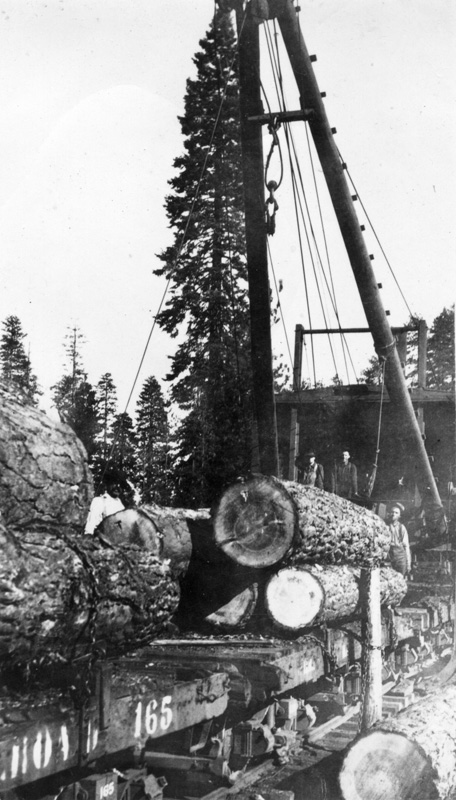 |
|
One of the McGiffert loaders at work. Jeff Moore collection. |
|
|
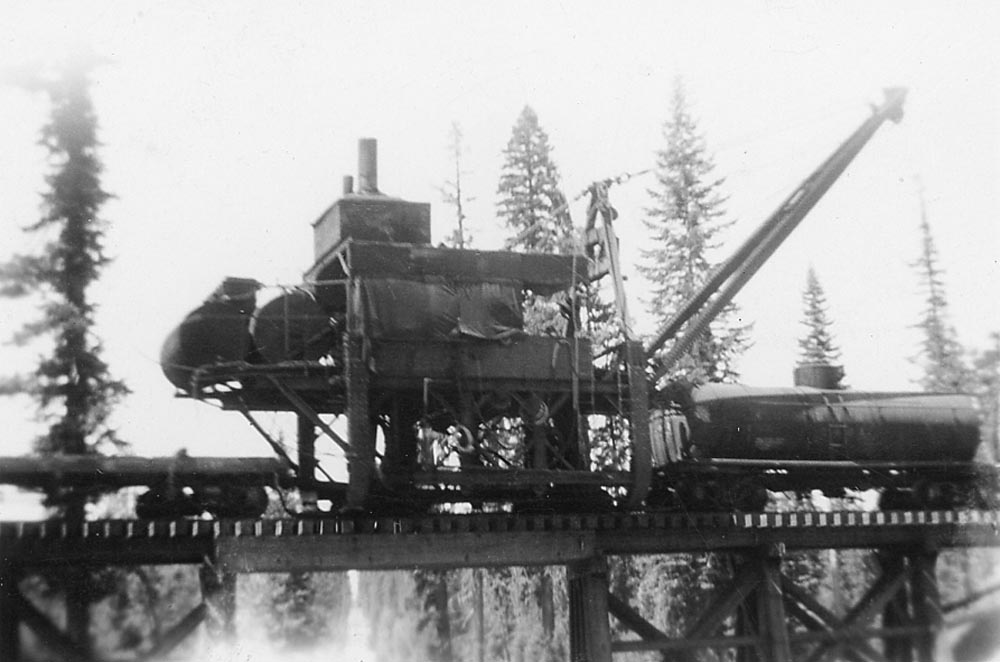 |
|
One of the later McGifferts crossing the trestle over Highway 89 near Pondosa in transit to a new landing site. Note that the running gear is down, allowing the loader to propel itself along the rails. Photo from the Jeff Moore collection. |
|
|
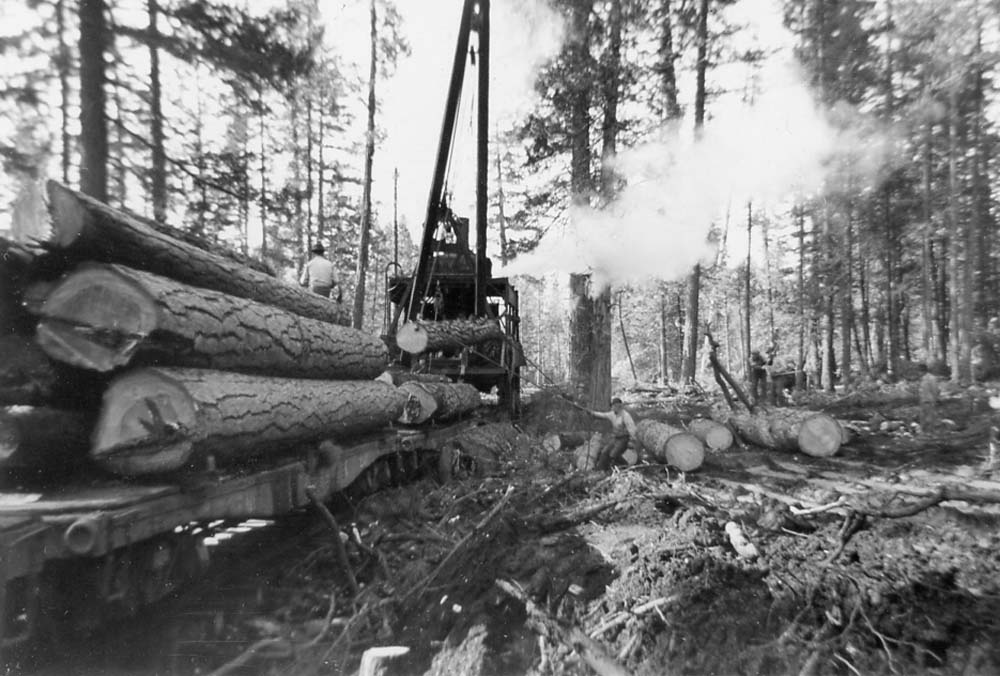 |
|
A McGiffert loader in the process of loading logs onto some cars. Photo from the Jeff Moore collection. |
|
|
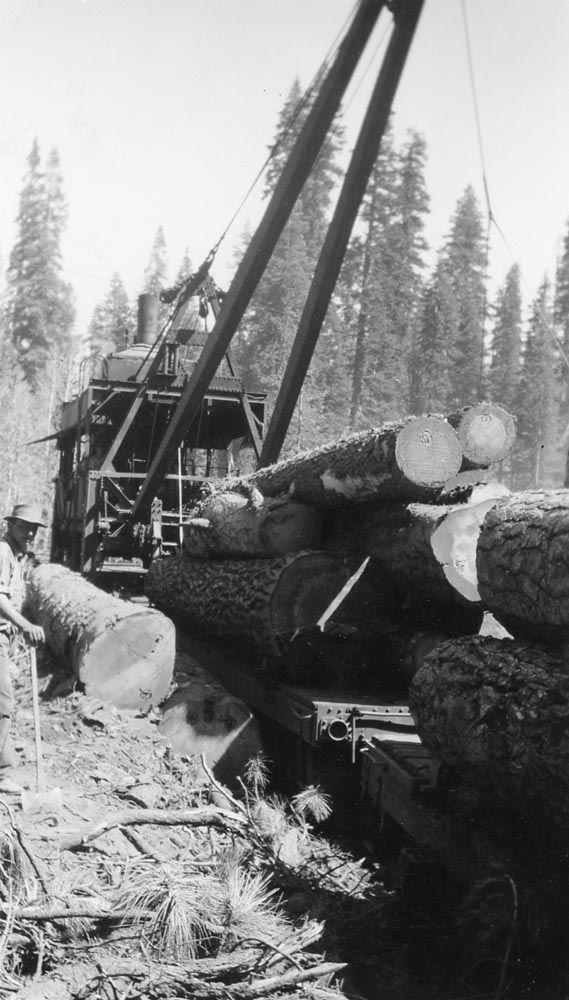 |
|
Another shot of a McGiffert loader working in the woods near Pondosa. Photo from the Jeff Moore collection. |
|
|
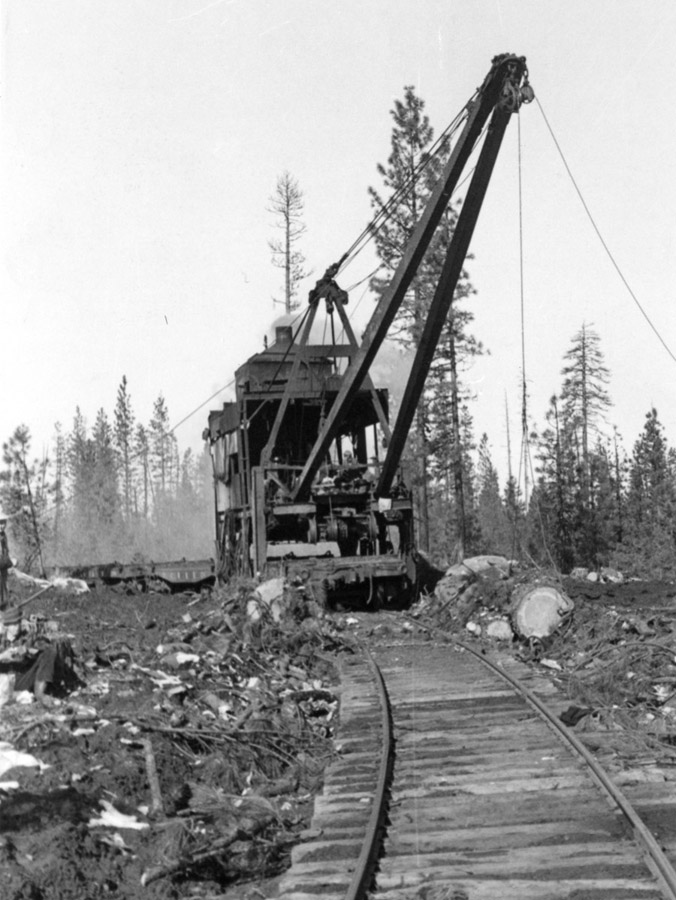 |
|
One of the McGiffert loaders set up to work in the White Horse country. Jeff Moore collection. |
|
|
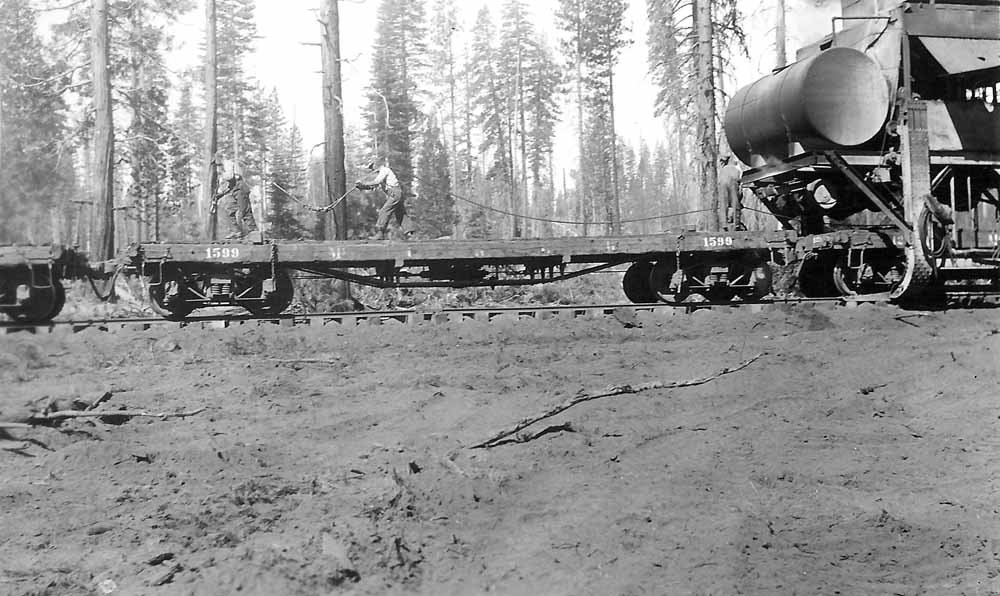 |
|
Moving the string of log flats under the loader required either a switch engine, judicious use of gravity, or a car line as seen here. The line would be secured to the back of the car, and then when pulled back in would move the string of cars so that the next empty could be loaded. Roland Edwards photo, courtesy Marilyn Rountree. |
|
|
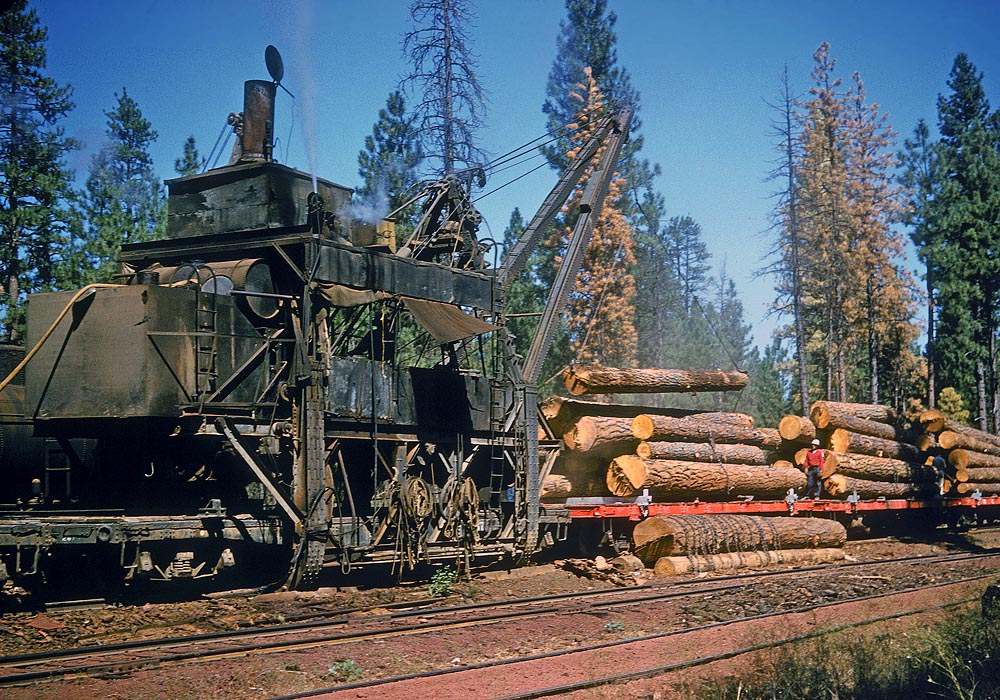 |
|
A color shot of one of the McGifferts loading log cars near Burney in 1958. Photo by and courtesy of John West. |
|
|
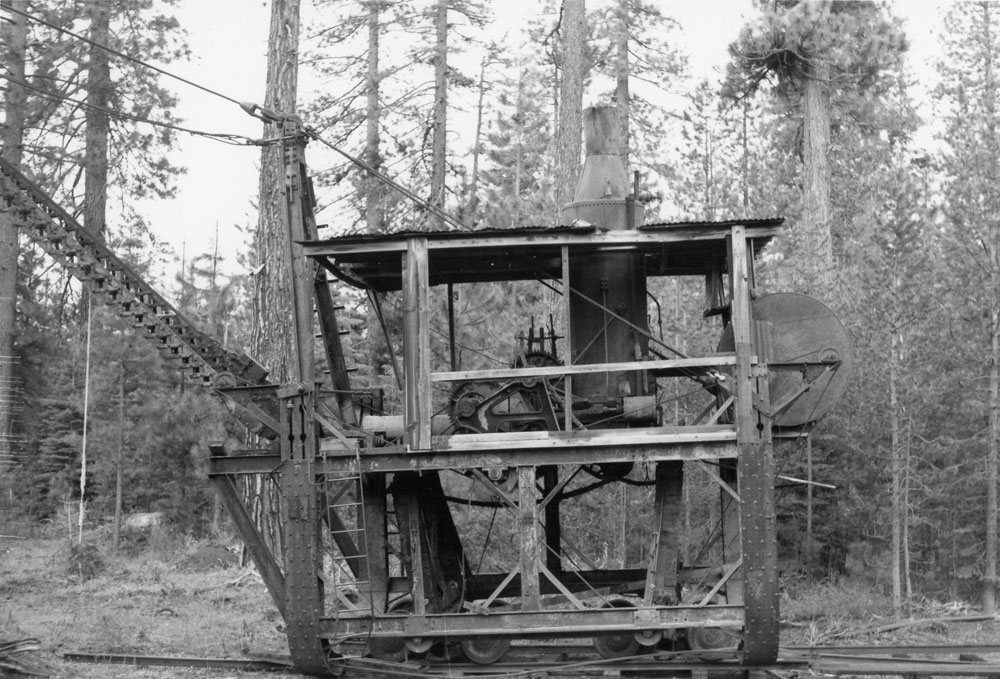 |
|
John R. Cummings found McCloud's McGiffert loader #1205 sitting derelict near McCloud in June 1964. |
|
|
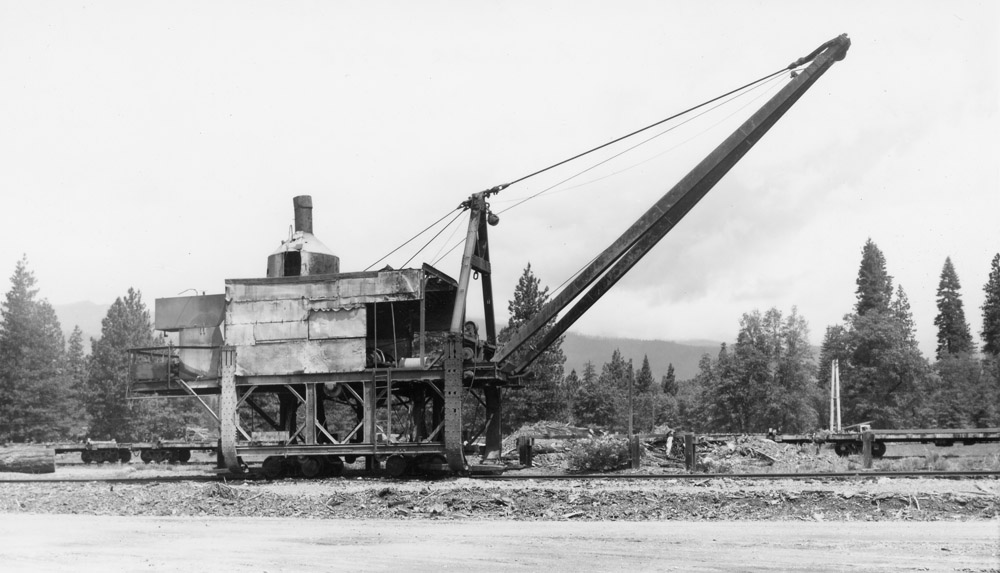 |
|
Long-Bell Lumber's McGiffert #1260 set up to load cars in McCloud in June 1964. |
|
|
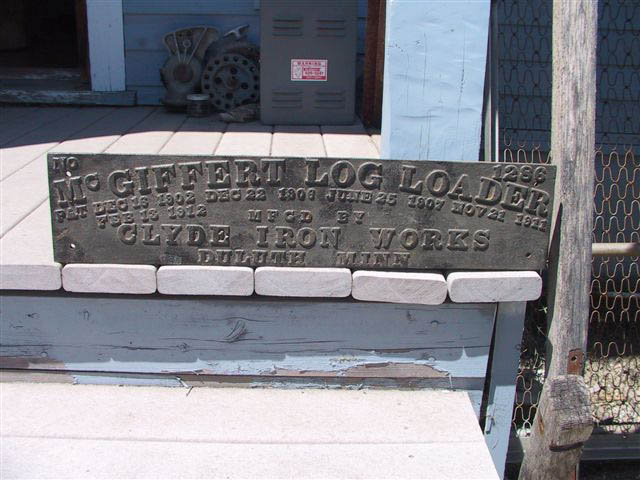 |
|
Heritage Junction Museum of McCloud, Inc. has the builders plate from McGiffert #1286 in its collection. Photo by and courtesy of Norman Linn. |
|
|
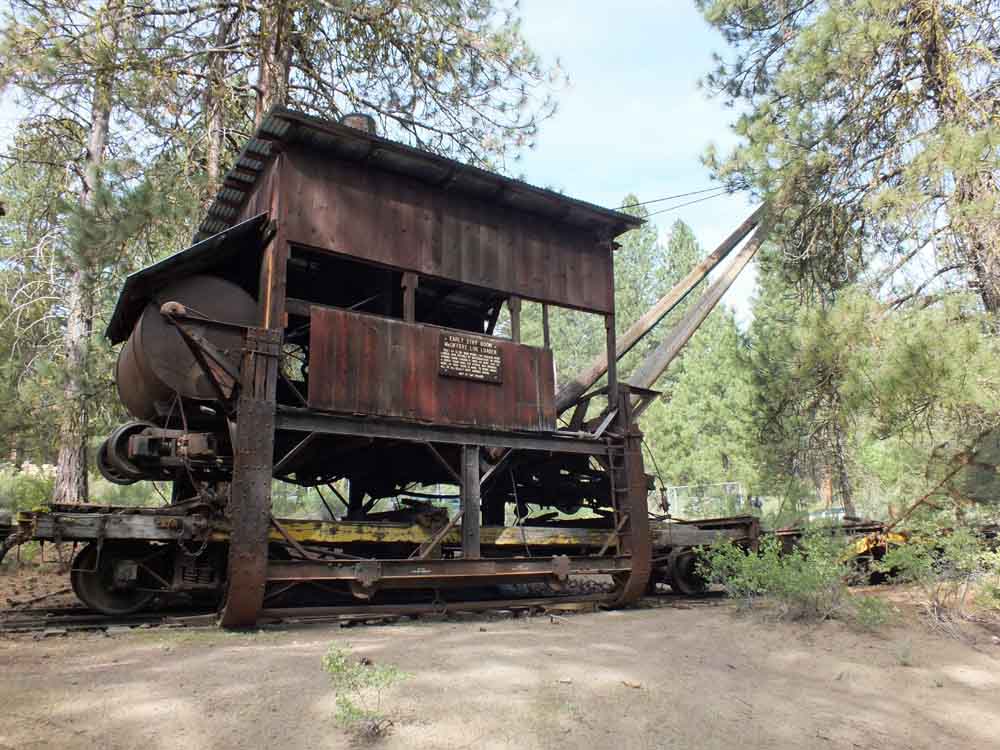 |
|
The former McCloud River Railroad McGiffert loader #1751:1 as it appeared in the Collier State Park logging museum collection near Chiloquin, Oregon, until the Two Four Two fire burned over the machine in September 2020. Jeff Moore photo. |
|
|
|
The former #1751:1 in March 2022, about a year and a half after the fire. Jeff Moore photos. |
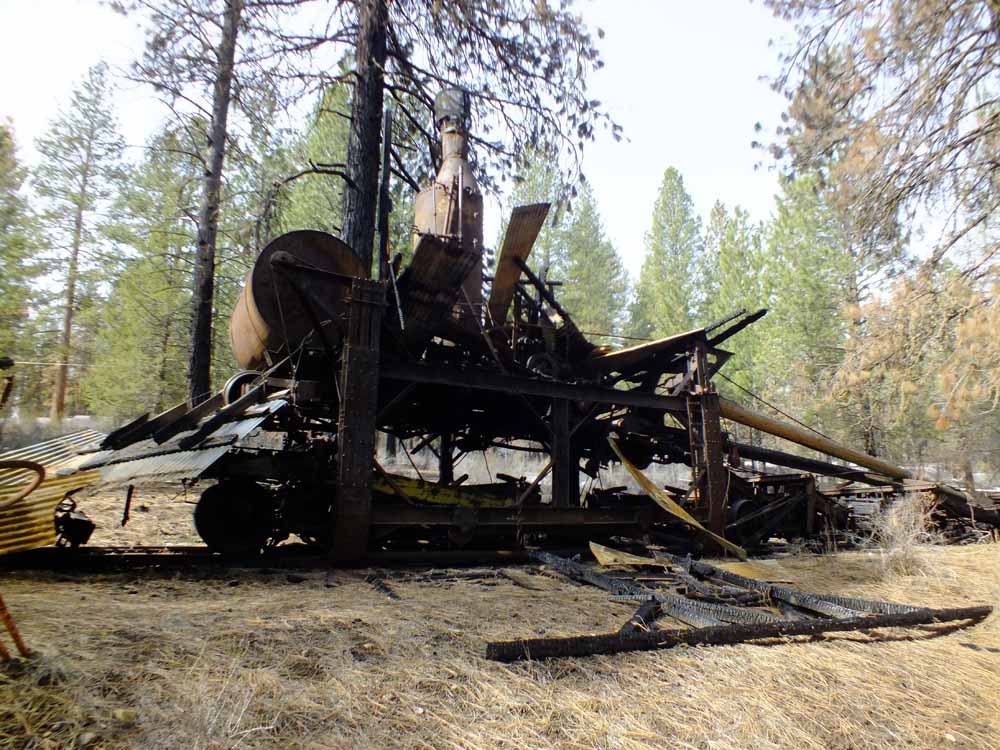 |
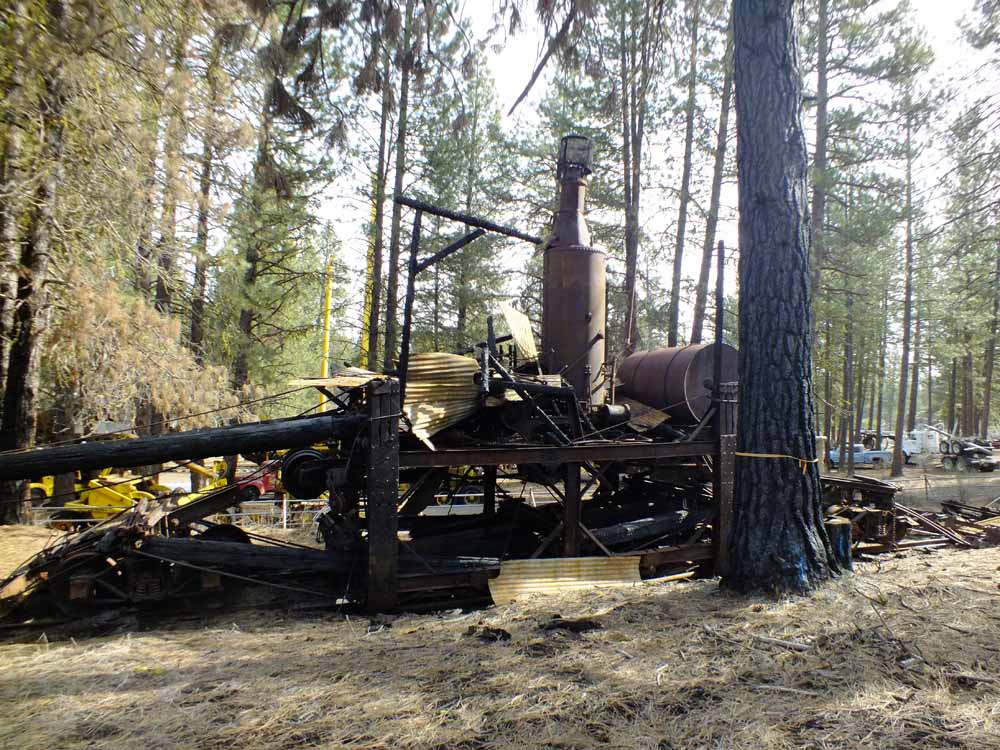 |
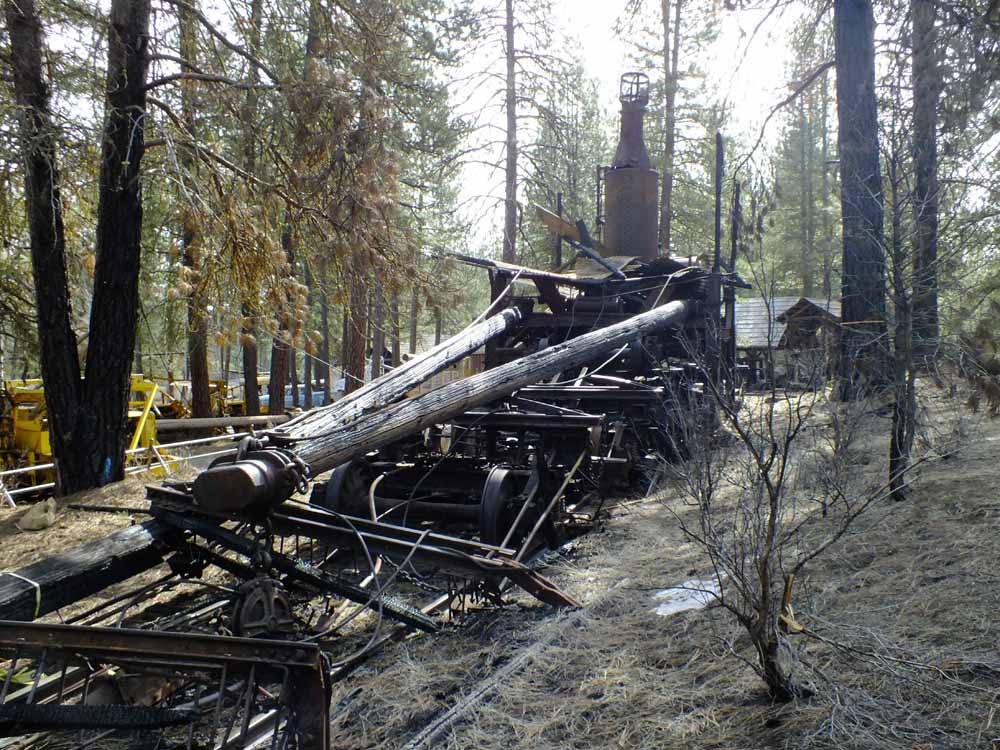 |
|
|
|
Several groups stepped forward with assistance offers to rebuild the McGiffert and the three Brooks-Scanlon Lumber Company log flats displayed with it, which resulted in a complete cosmetic restoration of the machine completed by 2025. Jeff Moore photos. |
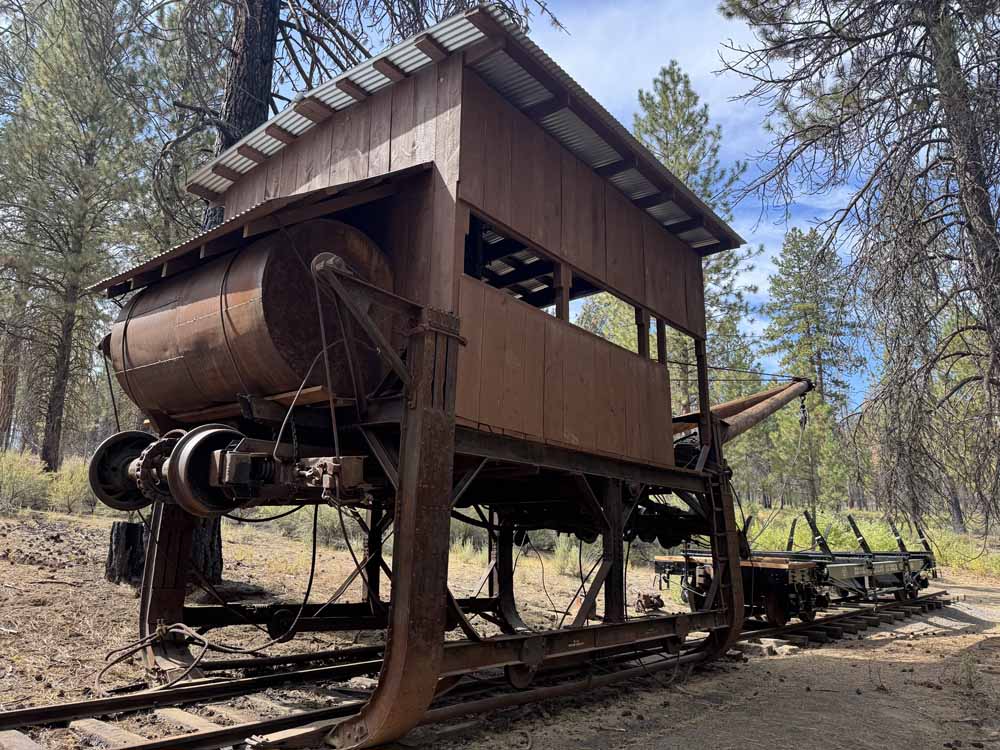 |
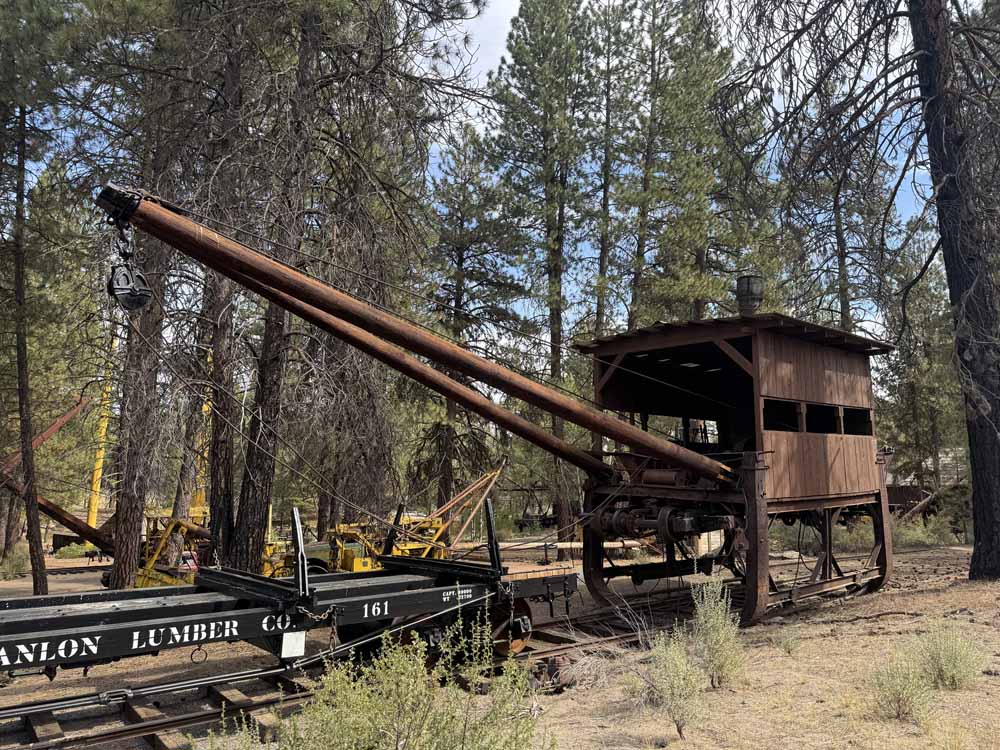 |
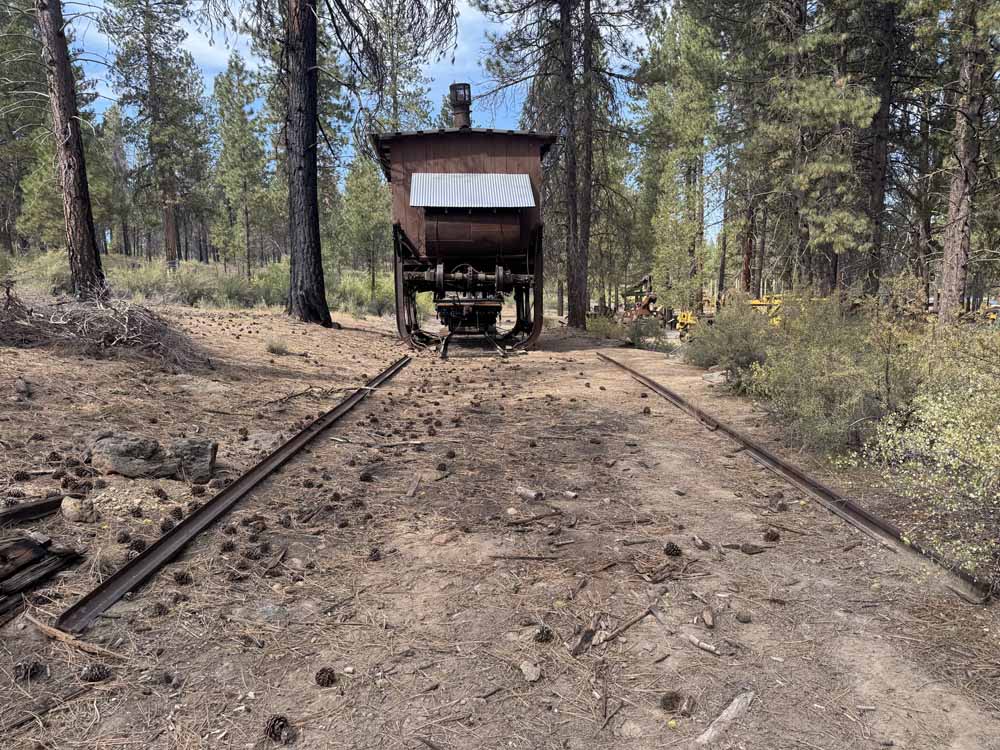 |
|
|